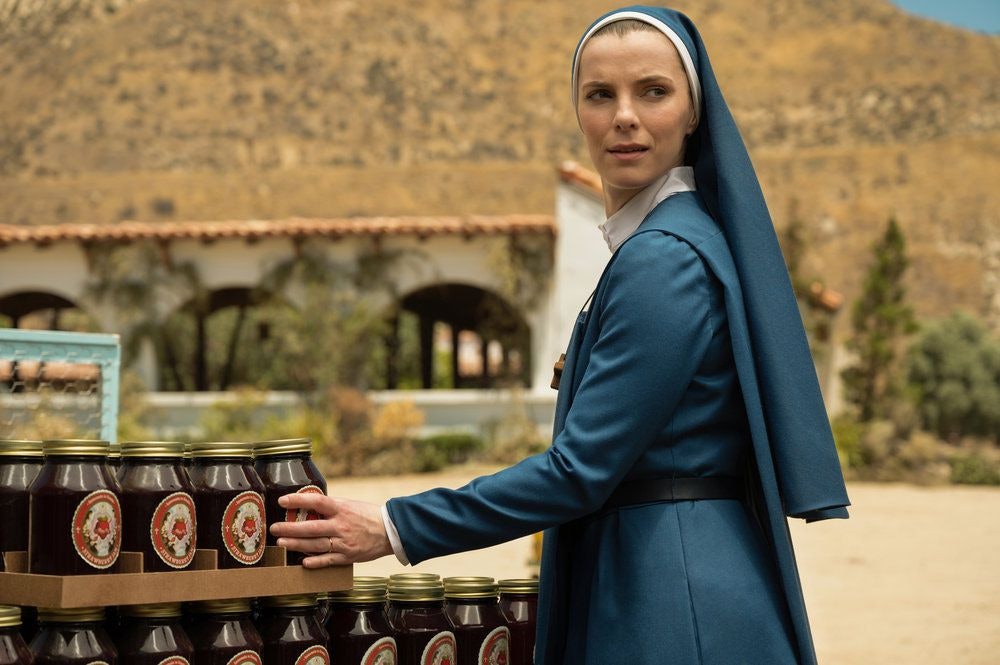
Mrs. Davis is causing quite the stir. Damon Lindelof’s series about a nun conquering an A.I. appears to be a cautionary tale about the power of technology. But for me, a once hyper-passionate Catholic who had turned away from the faith completely, Mrs. Davis had an unintended effect: it reminded me of the joys of spirituality … and the faith I cast aside.
The lapsed Catholic is a tale as old as time. I was always the token religious kid in school growing up, prone to being prudish and judgmental, and making a big deal about fasting for the triduum (that’s Holy Thursday, Good Friday, and Holy Saturday). But like the millions of people who are raised in the strict, repressive religion, once I entered the wider world, I realized that Catholicism didn’t serve me anymore.
I only had one real career goal when I reached 11th grade: I was going to go to college and then join the Daughters of St. Paul, also known as the “Media Nuns” — nuns who specialize in media studies and spread the word of God through technology. I loved their movie reviews and thought it would be a great way to combine (what I thought was) a call to serve with a love of storytelling and analyzing films.
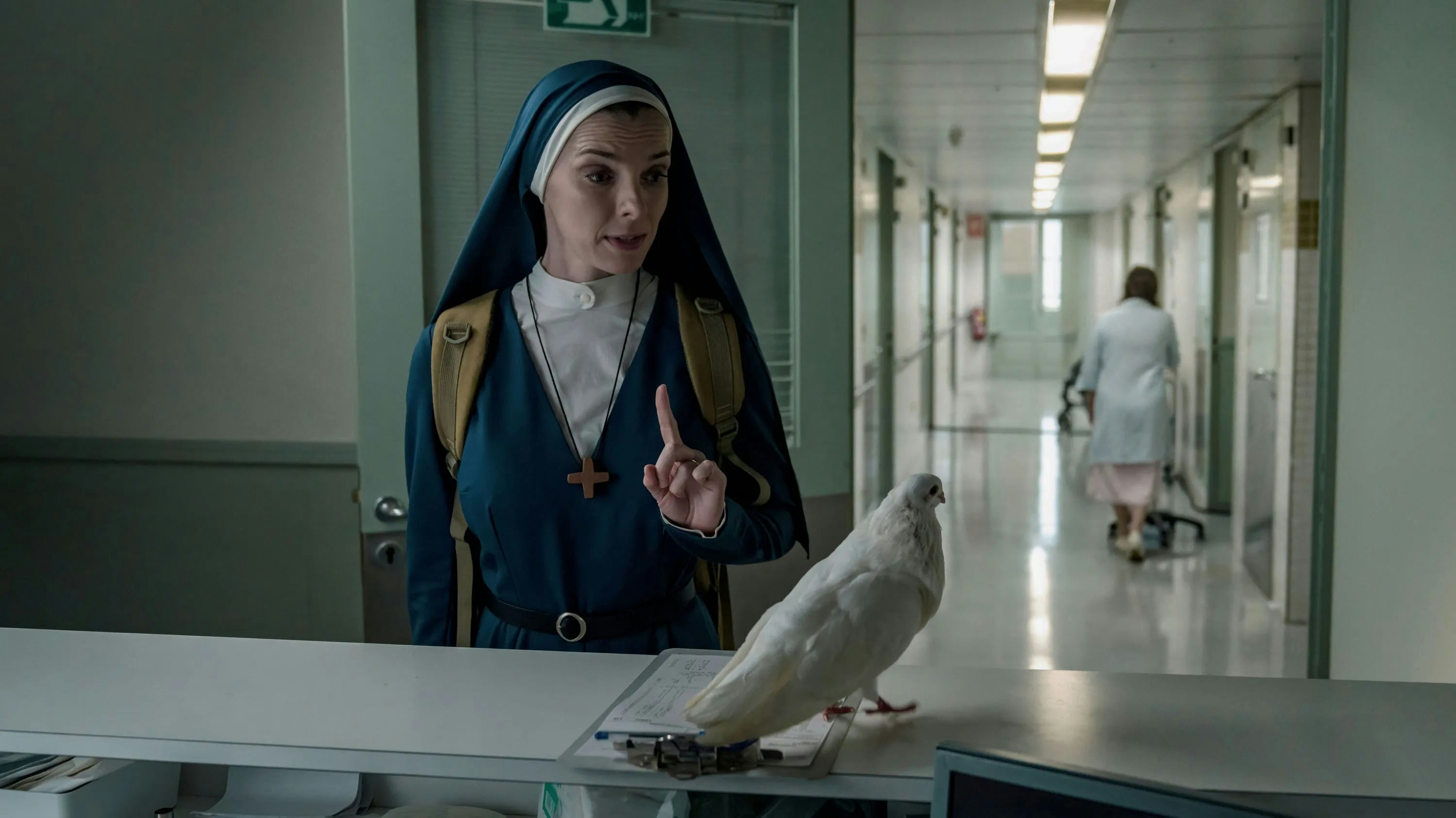
But once I started college, I realized there’s more to me than my faith and my religion. I was about three classes into Intro to Queer Studies when I realized my personal conflict between what I felt was right and what I was taught wasn’t something I had to reckon with as a personal failing.
I was terrified of the term “Cafeteria Catholic,” a derogatory term I heard thrown around when people chose parts of the doctrine to follow, cherry-picking and customizing faith like diners in a cafeteria. I thought faith was an all-or-nothing deal. So when I realized I didn’t believe in the “social justice” the Church told me was right, I assumed my only choice was to abandon faith entirely.
After that, I focused on discovering my identity outside of beliefs, trying to be a good person to those around me, not some strict instruction manual. I graduated, got a job writing about television, and didn’t think about religion much after that.
Then I watched Mrs. Davis.
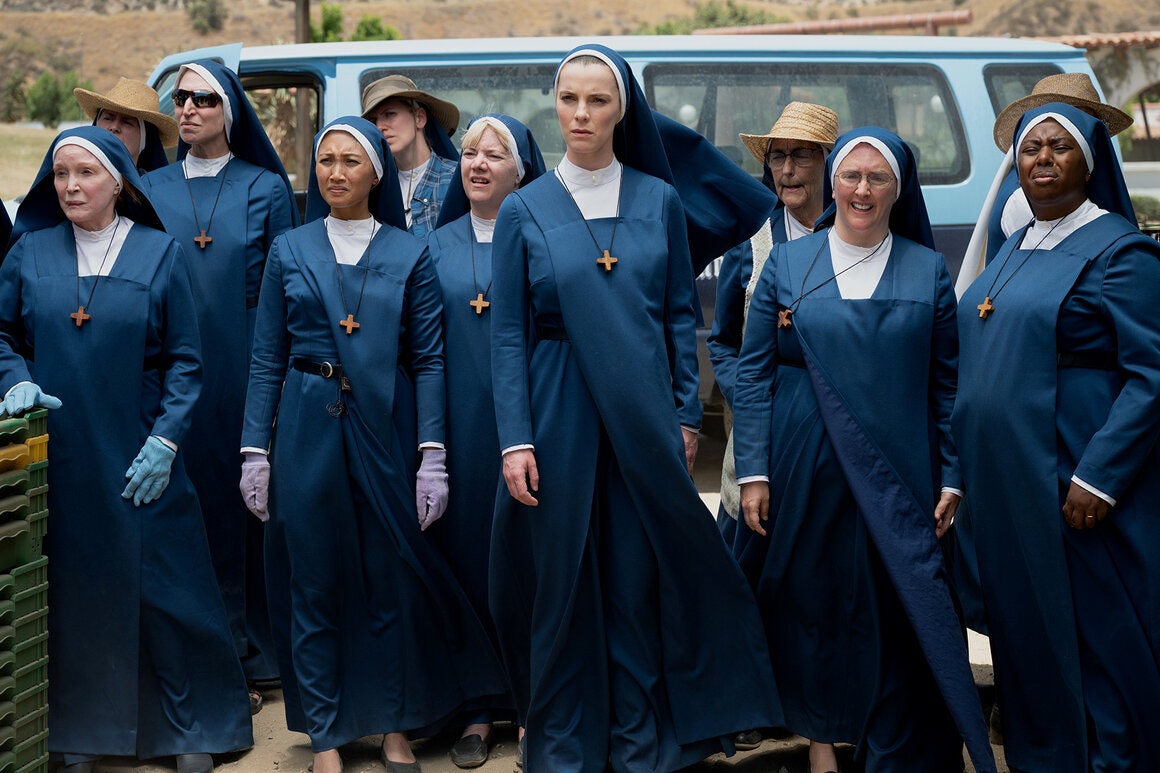
Of course, I always had a soft spot for nun stories, as they reminded me of my past dreams of a vocational life. Knowing Damon Lindelof’s previous depictions of nuns had amounted to Sister Night in Watchmen, I was expecting the nun aspect to merely be a religious aesthetic or a tragic backstory. I was shocked when, in just the first episode of Mrs. Davis, Sister Simone is shown as part of a joyful, intentional community of women who made jam, sang songs, and took care of horses. They live in a tech-free bubble in a world overrun with technology and governed by the whims of an AI. But there’s more to Sister Simone’s life than just strawberry jam.
Throughout the first episode, Simone speaks to a man named Jay in a restaurant. Jay gives her missions to defeat magicians and charlatans, and he feeds her falafel. He’s the one who directs her to defeat Mrs. Davis. But we don’t find out who he really is until Episode 2.
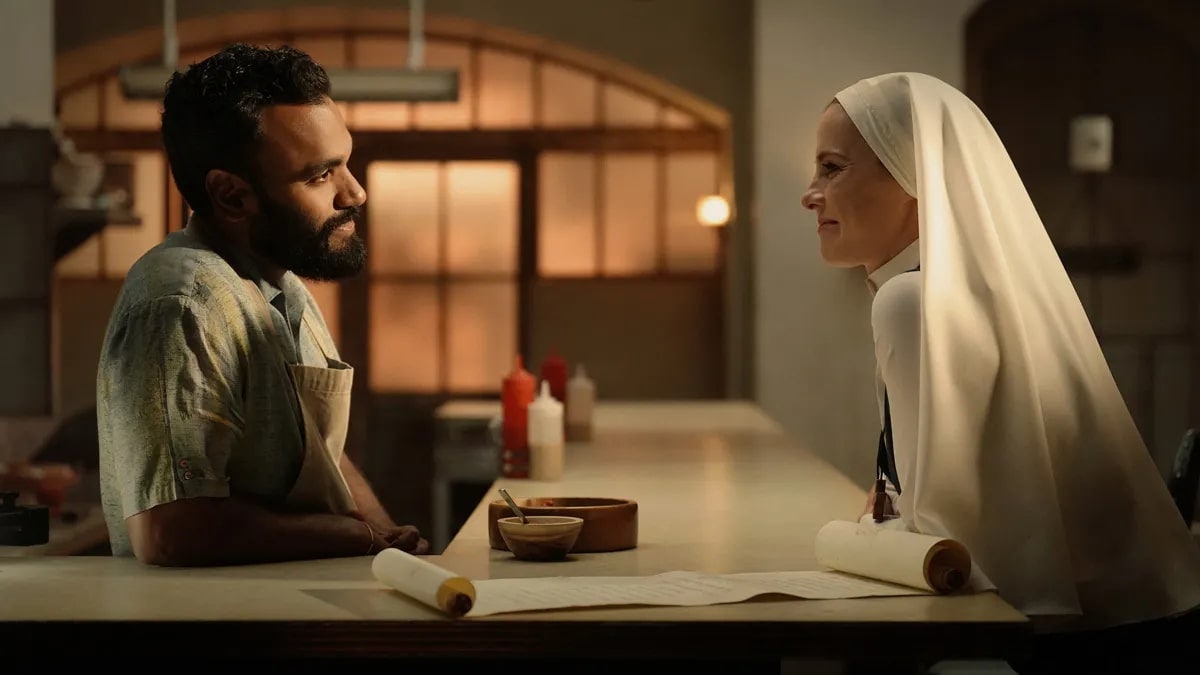
Spoiler alert: “Jay” is Simone’s husband. All nuns are “married” to the Church when they are initiated, so Jay is actually Jesus Christ, and the restaurant is the ethereal plane she visits when she’s praying. It’s a quietly revolutionary way of depicting religion: Simone’s faith isn’t shouting into a void to someone who may not exist. It’s real to her, it’s personal, and it feeds her falafel when she’s feeling down.
Seeing this moment play out, in its casual effortlessness, shocked me. It had never occurred to me that a relationship with God could be as personal as a relationship with a friend or, in Simone’s case, a spouse. She commiserates with Jay, conspires with him, and takes her vows to him very seriously, even when that means reckoning with how their relationship was different.
But at the same time, Simone isn’t afraid to break the rules. Even her habit includes a pair of pants, which is unheard of for that style of religious garb. Not only is her faith personal, but her ethics are too. She does what she thinks is right, not what fits the doctrine. She’s still just as devout as anyone else, she just shows it in a different way. I had forgotten that faith isn’t how others see you, but how you see yourself.
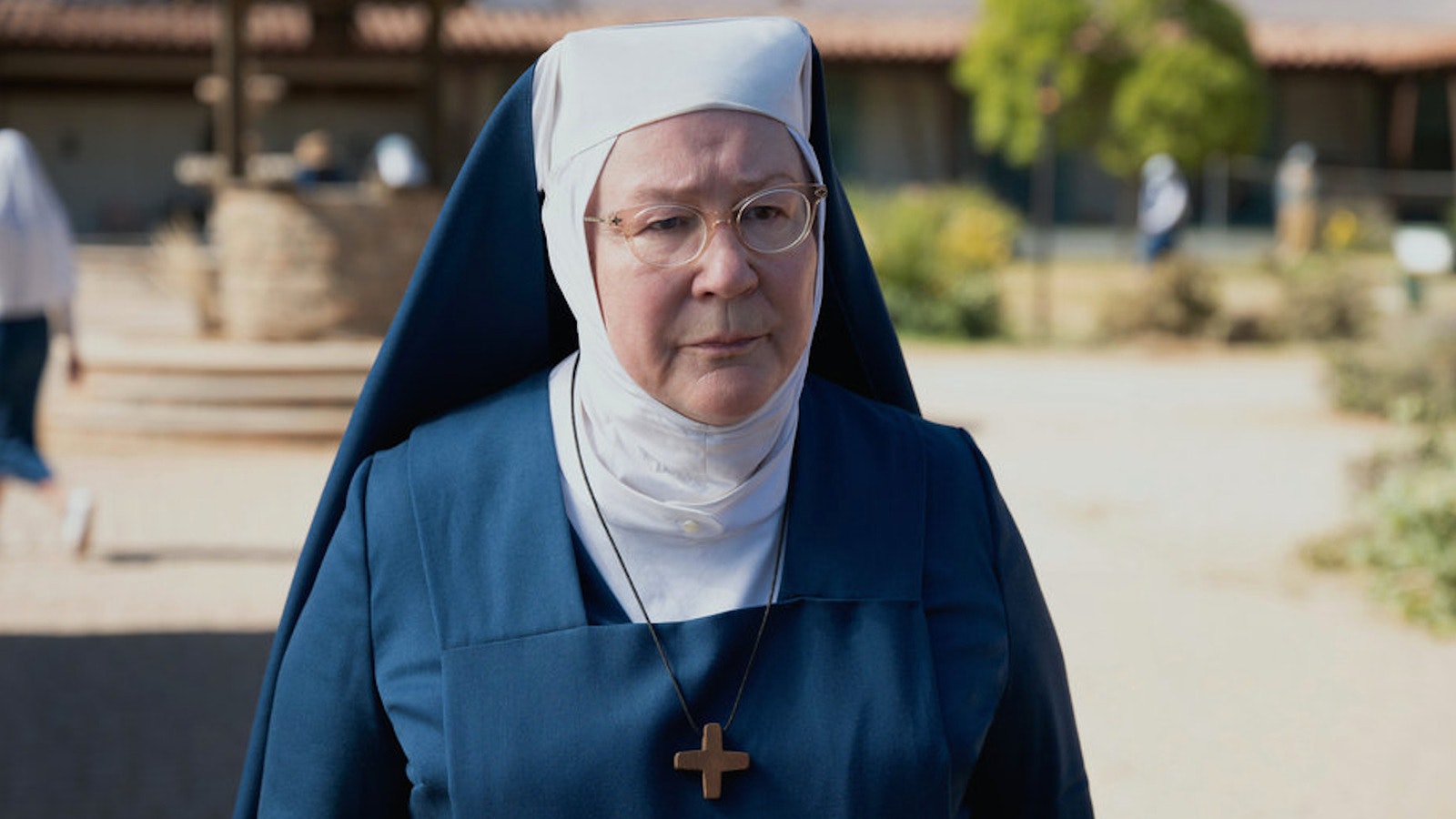
In the opening of Episode 4, we see Simone’s journey from novitiate to sister. The first time I watched it, I couldn’t help myself — I burst into tears. The deep personal faith Simone exhibited, a faith that isn’t practiced to find belonging or to feel like a good person, but to find purpose and fulfillment, was something I didn’t realize I craved.
Mrs. Davis proved to me that being a “Cafeteria Catholic” isn’t something to be ashamed of. It’s just a term meaning you have self-actualized your own beliefs and are comfortable not celebrating traditionally. I’m not about to go back to praying rosaries in public or going to church every week, but Mrs. Davis made me realize faith doesn’t have to be that. It can just be a personal relationship with a higher power, however you define it. And it can be as simple as a conversation over falafel.







